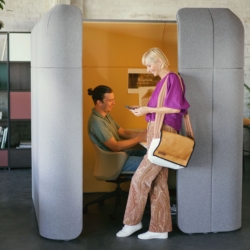March 15, 2013
Where flexible working employees really want to work? Starbucks.
 Leaving aside the fact that most surveys are designed to further the commercial interests of the firms that commission them, most offer a deal of insight into what drives people and organisations, some of it unwitting. Most telling are often the specific details that lift the veil on the motivations and attitudes of individuals. So it was with a recent survey from Overbury that headlined on the idea that poorly designed offices hamper creativity, but also contained a question that was answered in a way which suggested that the place most staff would like to work would be something akin to their local Starbucks.
Leaving aside the fact that most surveys are designed to further the commercial interests of the firms that commission them, most offer a deal of insight into what drives people and organisations, some of it unwitting. Most telling are often the specific details that lift the veil on the motivations and attitudes of individuals. So it was with a recent survey from Overbury that headlined on the idea that poorly designed offices hamper creativity, but also contained a question that was answered in a way which suggested that the place most staff would like to work would be something akin to their local Starbucks.
























March 23, 2013
The resistance to flexible working is entirely reasonable
by Mark Eltringham • Comment, Facilities management, Technology, Workplace, Workplace design
(more…)